How do you know which air filter is best for your home? The primary difference between these seven types of filters is their ability to filter various airborne pollutants. Different factors affect filtering ability, such as the material that makes up the filter. We'll go through the main types of filters and the pros and cons of each.
What Does the Air Filter in Your HVAC System Do?
The filter in your HVAC system works to remove harmful particles from the air as it flows through the system. Air filters increase your indoor air quality which helps you stay healthy, making them an important part of your air conditioning system.
What is MERV rating?
Different air filters have varying MERV ratings to determine efficiency levels. MERV stands for Minimum Efficiency Reporting Value, and rates filters on their ability to capture particles. This rating ranges from one to 16, with 16 being the best filtering ability.
While a filter with a higher MERV rating is better for trapping contaminants, it can be more costly and can also lead to lower airflow. This airflow resistance can strain your HVAC system and lower its overall efficiency in the long run. Because of this, you should consider both MERV rating and other factors when choosing the best air filter for your home.
The recommended MERV rating for homes is between eight and 13. Filters with MERV ratings above 13 are best for highly sanitized spaces such as hospitals or surgery centers. You should consult with your local HVAC contractor when deciding on the best option for you.
The Main Types of Air Filters
1. Spun glass or fiberglass filter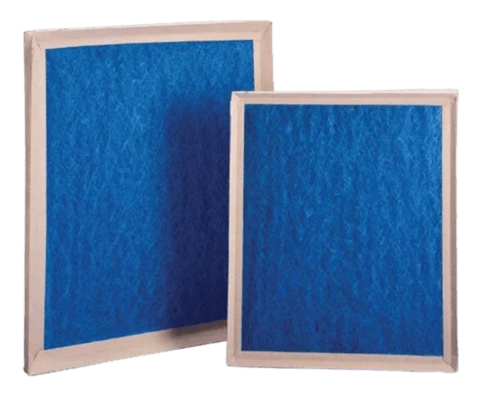
These filters consist of strands of glass spun together and reinforced by a metal grate. They're also known as flat-paneled filters and are one of the more common types of air filters due to their affordability.
While spun glass filters are the most inexpensive, they aren't the best for increasing indoor air quality. With a MERV rating of only five, these filters can only filter about 20 percent of particles that are around 3.0 - 10.0 microns in size. Particles in this size only include dust, carpet fibers, and pollen.
Pros
Least expensive option, best for keeping debris such as lint and dust out of the home.
Cons
Inadequate when it comes to purifying the air and removing most contaminants, can easily become clogged.
2. Electrostatic filter
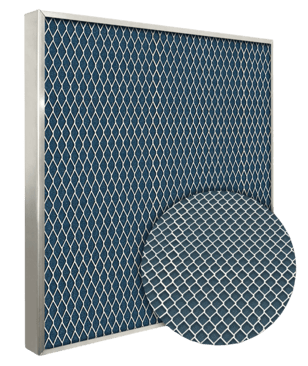
These filters create static electricity by using a mixture of cotton and paper fibers. The static then acts as a magnet and traps pollutants within the filter screen. This is ideal for people with allergies, as it prevents the allergens from spreading around your home. Typically, electrostatic filters also have a carbon filter -- which can be pleated or flat-paneled -- to improve efficiency. They also come in both washable and disposable versions.
Pros
Prevents the spread of allergens, affordable and can be reusable.
Cons
Ineffective against allergens such larger particles such as mold spores and dust/
3. Pleated filter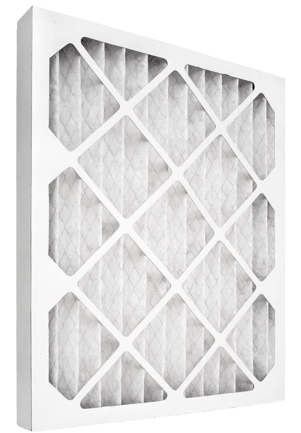
Pleated air filters are made from polyester or cotton fabric that's arranged into folds to increase the surface area of the filter. These filters are a little more expensive than fiberglass filters, but the bigger surface area helps to capture more contaminants such as pet dander and pollen. Pleated filters can be either reusable or disposable.
Pros
A larger surface area means they are more effective, lasts longer.
Cons
Slightly more expensive, pleats can restrict airflow.
4. HEPA filter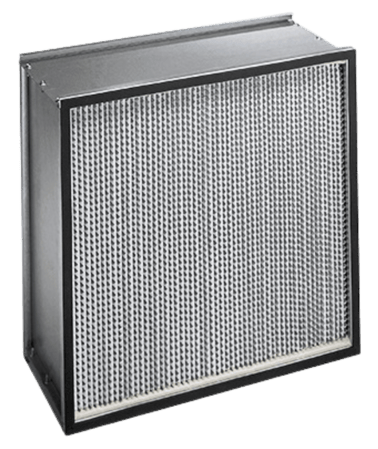
A HEPA -- high-efficiency particulate air -- filter is one of the most efficient types of HVAC filters. It can remove up to 99.97 percent of the airborne contaminants and allergens in your home including dust, pollen mold, smoke particles, pet dander, and bacteria. HEPA filters are useful for those who suffer from AC allergies or other respiratory issues.
Pros
Highly effective against different-sized pollutants, only needs to be replaced every few years making them cost-effective.
Cons
Smaller smoke particles or gasses can still pass through the filter, expensive compared to other types, high filtration may affect airflow and decrease your HVAC system's efficiency.
5. UV light filter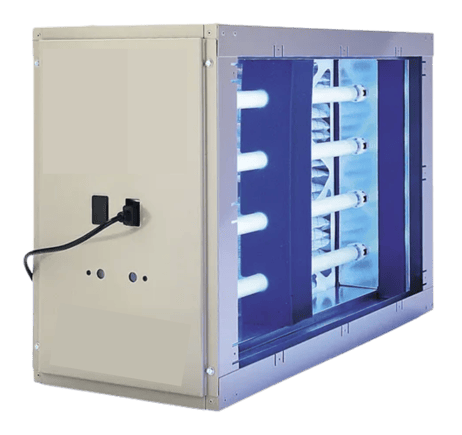
These filters use the process of germicidal radiation through a short-wave UV light to kill viruses and bacteria. As air passes through it is disinfected and rid of harmful microorganisms.
While UV filters do a better job at removing bacteria and viruses, they aren't as helpful for pollutants such as dust. Because of this, UV filters are often combined with HEPA filters for a more advanced filtration system. Additionally, these filters they could potentially convert oxygen molecules into ozone molecules. Ozone can have minor health concerns such as respiratory issues.
Pros
Eradicates disease-causing germs and pollutants.
Cons
Ineffective against allergens such as dust and smoke, relatively costly.
6. Washable filter
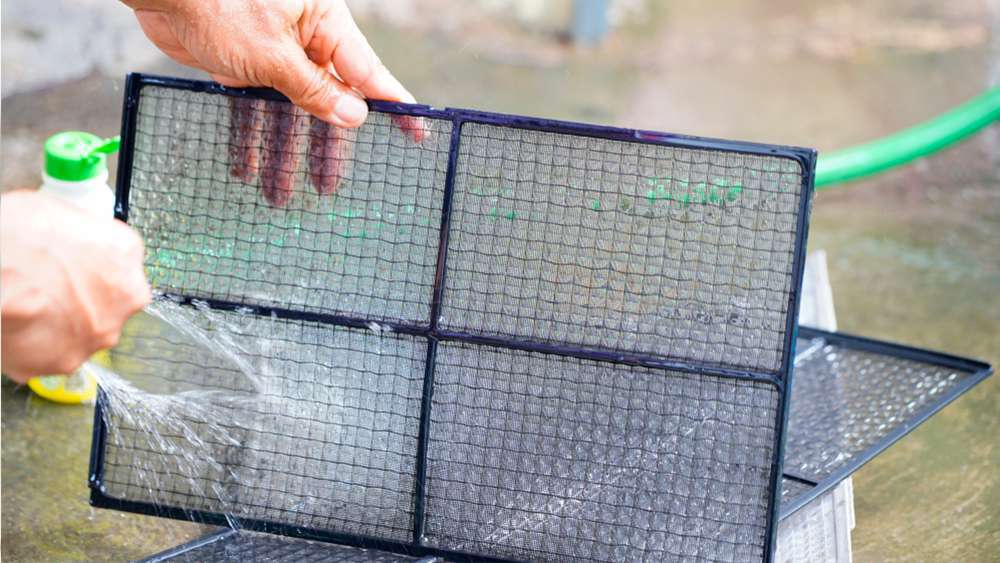
Washable filters are environmentally friendly as they do not need to be replaced or thrown out. They are also available in flat-paneled or pleated forms. To clean these filters, you need to vacuum or rinse them to remove any dirt. Allow the filter to fully dry before placing it back in your system, as damp filters can lead to mold and bacteria growth.
Pros
Saves money in the long run, better for the environment.
Cons
Requires regular maintenance to maintain effectiveness, doesn't protect against odors.
7. Media filter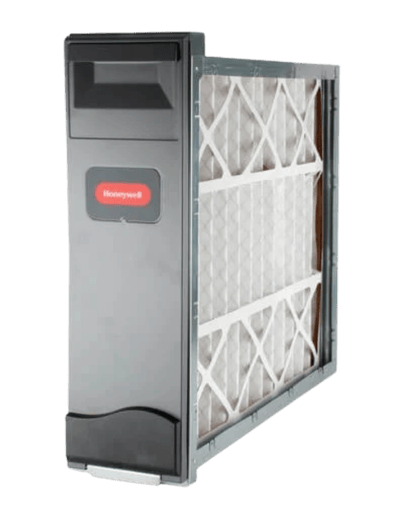
Media filters consist of a paper-like material folded into pleats inside a metal cabinet. The filter itself isn't wider than six inches, but the pleated material can cover up to 75 square feet when unfolded. Like a standard pleated filter, this increased surface area makes the filter highly effective.
The larger surface area also helps the filter to last longer, up to two years depending on the environment.
Pros
Very effective at trapping most pollutants, low maintenance.
Cons
Must be installed by a professional, doesn't filter out odors.
If you live in the Delaware Valley/Greater Philadelphia area and would like to find comfort within your home, visit our website or give us a call at 215 - 245 - 3200 to learn more.



